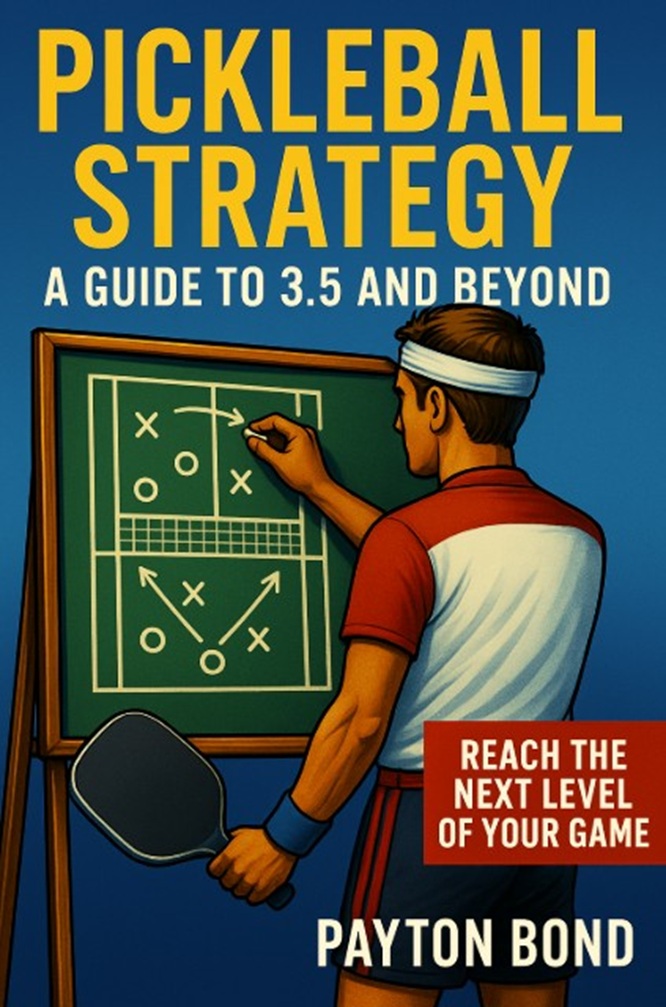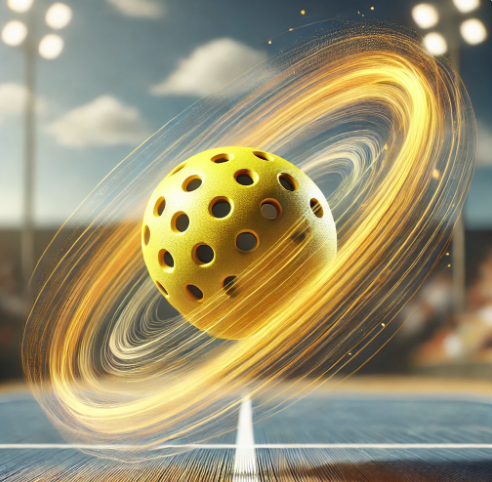
As you advance in pickleball, adding spin to your serve return can give you a big advantage. Spin challenges your opponent by complicating their third shot, forcing them to make adjustments that often lead to mistakes. Mastering spin gives you control over the pace and trajectory of the rally, setting you up for success.
Pickleball Serve Return with Spin
Spin isn’t just for show; it’s a tactical weapon.
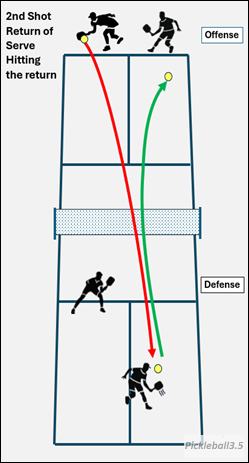
Adding spin to your serve return makes your opponent feel uneasy as they contemplate how to handle their third shot.
Here’s why spin works:
- It creates unpredictable ball movement, making their third shot less reliable.
- It forces them to adjust their shot mechanics, and let’s face it, under pressure, that’s easier said than done.
- A deep return with spin also keeps them back giving you time to move forward to the kitchen.
Spin is especially effective against advanced players who rely on the third shot drop. By adding spin, you throw a wrench into their plans, forcing them to adjust their drop shot and setting you up for a winning rally.
Topspin Returns
Topspin returns are like serving up a spicy dish—it’s hot, it’s aggressive, and if your opponent isn’t ready, they’ll struggle to handle it.
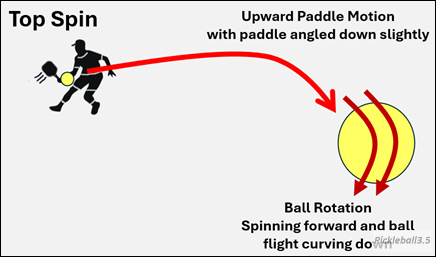
Why It Works:
- Unpredictable Bounce: Topspin causes the ball to dip quickly and bounce higher than expected. If your opponent isn’t prepared, their third shot might pop up setting you up for a put away volley or smash.
- Common Errors: Hitting third shot drives off top spin returns move up off the paddle, while drop attempts often end up floating higher than they intended—perfect for you to pounce.
How to Execute:
Another approach is to try a slower, deeper lofted topspin return. It lands deep and bounces toward your opponent. They may find it much harder to handle than it looks.
Use a fast, aggressive topspin return to put pressure on your opponent, but don’t go full Hulk—you’ll just end up smashing the ball into the net or out of bounds.
Backspin Returns
Backspin returns are deceptive and mostly unexpected.
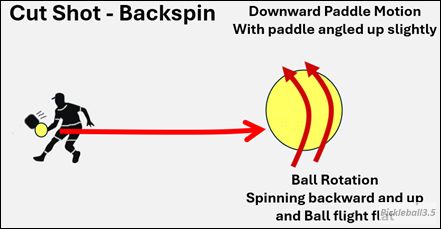
Why It Works:
- Deceptive Flight: Backspin makes the ball glide through the air more slowly and when they hit the paddle, they move down sharply.
- Downward Bounce: If your opponent doesn’t adjust, the ball plummets into the net faster than their hopes of winning the rally.
How to Execute:
Slice the ball with a smooth downward motion to apply backspin. Keep it low and flat, forcing your opponent to work harder to lift it over the net without error.
Sidespin Returns
Sidespin is the pickleball equivalent of a curveball—it’s flashy, unpredictable, and guaranteed to make your opponent second-guess themselves.
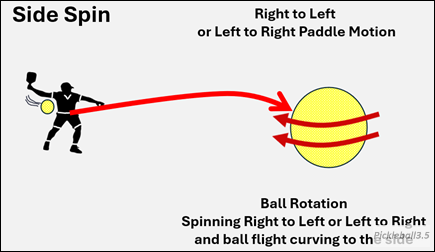
Why It Works:
- Curved Flight: The ball veers to the side making it harder for your opponent to position themselves.
- Maintained Spin: If they hit softly, your spin clings to the ball resulting in a shot that goes where you want it, not where they thought it would.
- Forced Firmness: Your opponent has to hit harder to counteract the spin, increasing their chances miss hitting and sending the shot out of bounds.
How to Execute:
Brush the ball sideways to create spin. Aim deep to keep your opponent off balance and frustrated—bonus points if they audibly sigh.
When Spin is Less Effective
Spin, while magical, isn’t foolproof. Here’s when it might not work:
- Against Third Shot Drives: Power cancels out spin. Advanced players with strong third shot drives won’t be fazed.
- Risk of Errors: If your spin is more “out of bounds” than “on point,” it’s time to scale back and refocus on consistency.
Summary: Using Spin in Pickleball Serve Returns
Adding spin to your serve return is like upgrading your car to turbo mode—it’s flashy, effective, and leaves your opponents struggling to keep up.
Here’s the recap:
- Topspin: Creates aggressive bounces that force high or deep errors, especially on drop attempts.
- Backspin: Produces a downward ball motion that can lead to net errors if mishandled.
- Sidespin: Introduces lateral movement, disrupting positioning and timing.
While spin is a great tactic, remember that consistency is key. Use spin strategically to complicate your opponent’s third shot, and you’ll keep them guessing while keeping the advantage squarely on your side.
Check out Payton Bonds new eBook!
Pickleball Strategy – A Guide to 3.5 and Beyond
See it on Amazon.

👤 Follow Payton Bond
All Star and Top Contributor on multiple Facebook Pickleball Forums.
Contributor at TheKitchenPickle.com.
Visit Payton Bonds Facebook Page
Keep Learning:
- Check the post on how to execute spin shots: Pickleball Spin Shots – How to Add Spin.
- Read the next post on How Spin Affects Your Shots – The Physics of Pickleball.

